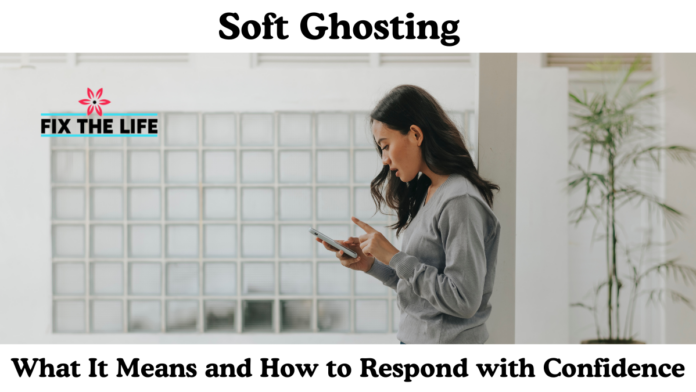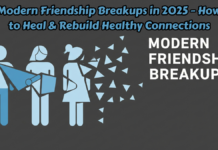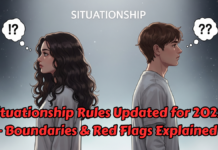Soft ghosting is a modern dating behavior where someone gradually reduces their engagement in conversations instead of abruptly cutting off contact. Unlike traditional ghosting, where communication ceases entirely, soft ghosting involves minimal responses—such as liking a message or replying with short, unenthusiastic texts—without fully disappearing.
How Soft Ghosting Differs from Ghosting in Texting
Ghosting in texting refers to a complete lack of response, where the person vanishes without explanation. Soft ghosting, on the other hand, is more subtle. The person may still acknowledge messages but avoids meaningful interaction. This behavior can be confusing, as it leaves the recipient uncertain about where they stand in the relationship.
Why Do People Soft Ghost?
Soft ghosting can happen for various reasons, including:
- Avoiding confrontation: Some people find it difficult to express their lack of interest directly.
- Uncertainty: They may be unsure about their feelings and keep minimal contact while deciding.
- Busy schedules: Life commitments can lead to reduced engagement, making it seem like soft ghosting.
- Loss of interest: Instead of openly communicating, they gradually disengage to signal their waning interest.
How to Respond to Soft Ghosting with Confidence
If you suspect you’re being soft ghosted, here’s how to handle it effectively:
1. Assess the Situation
Before jumping to conclusions, consider whether the person is genuinely busy or going through personal challenges. If their behavior has changed suddenly, they might need space rather than intentionally ghosting.
2. Communicate Directly
If you feel uncertain, ask them directly about their level of interest. A simple message like, “Hey, I’ve noticed our conversations have changed. Are you still interested in keeping in touch?” can provide clarity.
3. Set Boundaries
If their responses remain minimal and disengaged, it’s important to set boundaries. Avoid chasing someone who isn’t reciprocating your energy.
4. Focus on Yourself
Instead of dwelling on unanswered messages, shift your focus to personal growth, hobbies, and relationships that bring you joy.
5. Move On Gracefully
If soft ghosting turns into full ghosting, accept it as a sign to move forward. Respect yourself enough to let go of connections that don’t value your presence.
FAQs
1. How do I know if I’m being soft ghosted?
If someone consistently gives brief, delayed responses and avoids meaningful interaction, they may be soft ghosting you.
2. Is soft ghosting intentional?
Not always. Some people do it subconsciously due to uncertainty or personal distractions, while others use it as a way to avoid confrontation.
3. Should I confront someone who is soft ghosting me?
If you value clarity, a polite and direct conversation can help. However, if they continue to disengage, it’s best to move on.
4. How can I prevent being soft ghosted?
Building strong communication and mutual interest in relationships can reduce the chances of experiencing soft ghosting.
5. Does soft ghosting happen in friendships too?
Yes, soft ghosting can occur in friendships when someone gradually reduces their engagement without fully cutting ties.
Final Thoughts
Soft ghosting is a subtle yet impactful form of disengagement in modern dating behavior. While it can be confusing and frustrating, understanding its nature helps you navigate relationships with confidence. Instead of dwelling on unanswered messages, prioritize connections that reciprocate your energy and respect your time. Recognizing your self-worth empowers you to respond wisely—whether by addressing the situation or gracefully moving forward. In the end, genuine communication is the foundation of any meaningful relationship, and those who truly value you will show it through their actions.




